Filter by
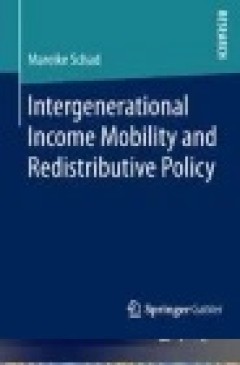
Intergenerational Income Mobility and Redistributive Policy
This work is subject to copyright. All rights are reserved by the Publisher, whether the whole or part of the material is concerned, speci¿ cally the rights of translation, reprinting, reuse of illustrations, recitation, broadcasting, reproduction on micro¿ lms or in any other physical way, and transmission or information storage and retrieval, electronic adaptation, computer software, or b…
- Edition
- -
- ISBN/ISSN
- 978-3-658-10465-8
- Collation
- -
- Series Title
- -
- Call Number
- -
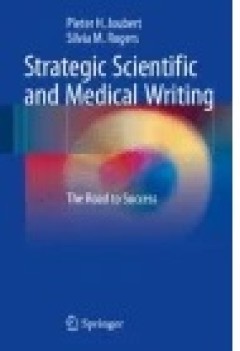
Strategic Scientific and Medical Writing
A document may be based on accurate medical and scientific information, follow guidelines precisely, and be well written in clear and correct language, but may still fail to achieve its objectives. The strategic approach described in this book will help you to turn good medical and scientific writing into successful writing. It describes clearly and concisely how to identify the target audience…
- Edition
- -
- ISBN/ISSN
- 978-3-662-48316-9
- Collation
- -
- Series Title
- -
- Call Number
- -
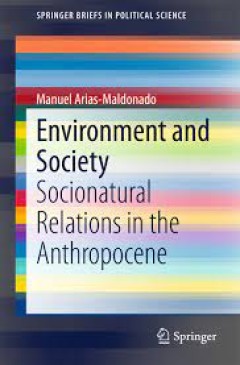
Environment and Society Socionatural Relations in the Anthropocene
This short book sets out to explore the concept of nature in the context of a changing reality, in which the extent of our transformation of the environment has become evident: What is nature and to what extent has humanity transformed it? How do nature and society relate to one another? What does the idea of a sustainable society entail and how can nature be understood as a political subject? …
- Edition
- -
- ISBN/ISSN
- 978-3-319-15952-2
- Collation
- X, 131
- Series Title
- -
- Call Number
- -
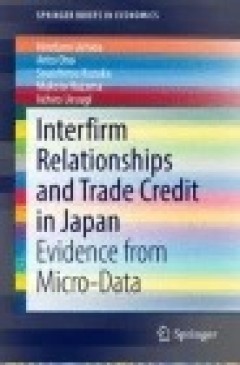
Interfirm Relationships and Trade Credit in Japan: Evidence from Micro-Data
This work is subject to copyright. All rights are reserved by the Publisher, whether the whole or part of the material is concerned, specifically the rights of translation, reprinting, reuse of illustrations, recitation, broadcasting, reproduction on microfilms or in any other physical way, and transmission or information storage and retrieval, electronic adaptation, computer software, or by…
- Edition
- -
- ISBN/ISSN
- 978-4-431-55187-4
- Collation
- -
- Series Title
- -
- Call Number
- -
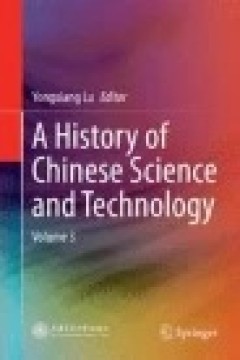
A History of Chinese Science and Technology: Volume 3
A History of Chinese Science and Technology (Voulumes 1, 2 & 3) presents 44 individual lectures, beginning with Ancient Chinese Science and Technology in the Process of Human Civilizations and An Overview of Ancient Chinese Science and Technology, and continuing with in-depth discussions of several issues in the history of science and the Needham Puzzle, interspersed with topics on Astronomy, A…
- Edition
- Ed. 1
- ISBN/ISSN
- 978-3-662-44163-3
- Collation
- -
- Series Title
- -
- Call Number
- 501 HIS h

Strategic Management of Universities in the Ibero-America Region
This book provides the readers with a map of the higher education systems and strategic management trends in the higher education institutions within countries of the Ibero-America region. The key feature of this volume is the presentation of a conceptual framework as a point of reference for the development of university management systems in a specific context. Furthermore, the book provides …
- Edition
- -
- ISBN/ISSN
- 978-3-319-14684-3
- Collation
- -
- Series Title
- -
- Call Number
- -

Environment Exposure to Pollutants
The impairment of lung function caused by environmental exposure to pollutants and toxicants is a rising health problem, particularly in highly industrialized parts of the world. The problem is urgently calling for the development of new methodologies to assess both the level of elemental exposure and the effects for quality of health and longevity. This volume provides state-of-the-art informa…
- Edition
- -
- ISBN/ISSN
- 978-3-319-10003-6
- Collation
- 10 b/w illustrations, 1 illustrations in colour
- Series Title
- -
- Call Number
- -
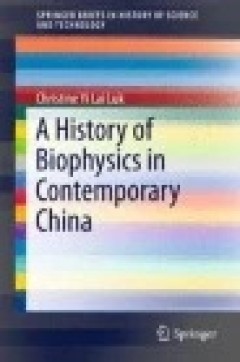
A History of Biophysics in Contemporary China
This book gives a concise history of biophysics in contemporary China, from about 1949 to 1976. It outlines how a science specialty evolved from an ambiguous and amorphous field into a fully-fledged academic discipline in the socio-institutional contexts of contemporary China. The book relates how, while initially consisting of cell biologists, the Chinese biophysics community redirected their …
- Edition
- Ed. 1
- ISBN/ISSN
- 978-3-319-18093-9
- Collation
- -
- Series Title
- SpringerBriefs in History of Science and Technology
- Call Number
- 501 LUK h
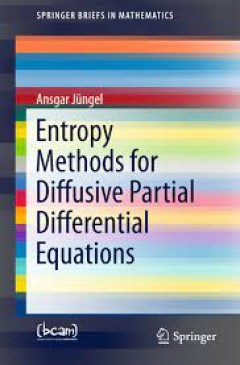
Entropy Methods for Diffusive Partial Differential Equations
This book presents a range of entropy methods for diffusive PDEs devised by many researchers in the course of the past few decades, which allow us to understand the qualitative behavior of solutions to diffusive equations (and Markov diffusion processes). Applications include the large-time asymptotics of solutions, the derivation of convex Sobolev inequalities, the existence and uniqueness of …
- Edition
- -
- ISBN/ISSN
- 978-3-319-34219-1
- Collation
- 1 illustrations in colour
- Series Title
- -
- Call Number
- -
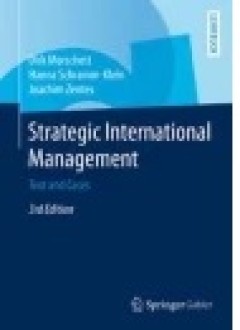
Strategic International Management
A compact overview of the most relevant concepts and developments in International Management. The various strategy concepts of internationally active companies and their implementation in practice are the core of this book. The authors describe the particularities of international value chain activities and management functions and offer a thorough understanding of how Production & Sourcing, R…
- Edition
- -
- ISBN/ISSN
- 978-3-658-07884-3
- Collation
- -
- Series Title
- -
- Call Number
- -
 Computer Science, Information & General Works
Computer Science, Information & General Works  Philosophy & Psychology
Philosophy & Psychology  Religion
Religion  Social Sciences
Social Sciences  Language
Language  Pure Science
Pure Science  Applied Sciences
Applied Sciences  Art & Recreation
Art & Recreation  Literature
Literature  History & Geography
History & Geography